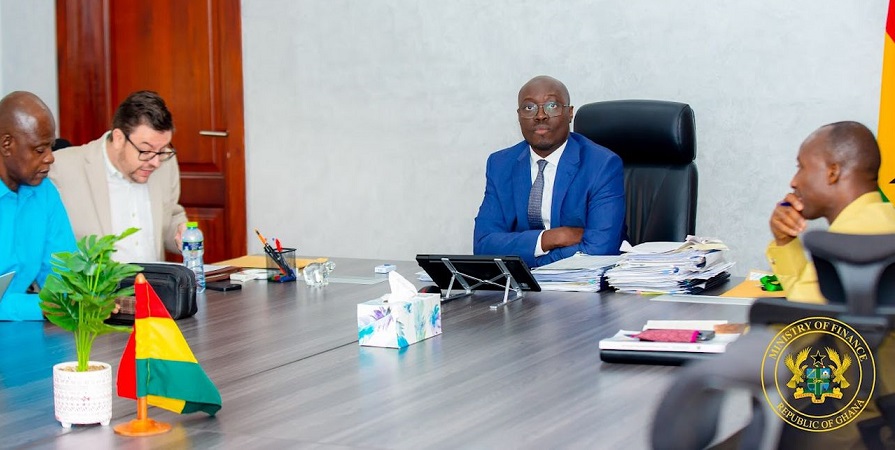
Ghana and the United Kingdom (UK) have ramped up collaborative efforts to combat the illegal gold trade, a persistent challenge undermining Ghana’s economy and natural resource management.
In a high-level meeting at Ghana’s Ministry of Finance, Dr. Cassiel Ato Forson, Ghana’s Minister for Finance, engaged with officials from the UK-Ghana Gold Programme to outline comprehensive strategies aimed at eliminating gold smuggling and ensuring that Ghana maximizes the benefits of its gold reserves.
The UK-Ghana Gold Programme is a flagship initiative designed to sever the link between illegal artisanal gold mining and organized crime. It focuses on building a sustainable gold trade system, aligning Ghana’s practices with international standards such as those set by the London Bullion Market Association (LBMA).
Alarming Scale of Smuggling
The meeting shed light on the dire consequences of illicit gold trade, revealing that an estimated 60 tonnes of gold valued at $1.2 billion were smuggled out of Ghana in 2022 alone. This staggering figure has not only deprived Ghana of critical revenue but has also fueled organized crime networks.
To counter this, stakeholders discussed the formation of the Ghana Gold Board (GoldBod), a centralized body to regulate gold trade, combat smuggling, and promote responsible sourcing. GoldBod will collaborate with key agencies, including the Economic and Organized Crime Office (EOCO), to intercept illegal gold at critical border points like Bole, known for high smuggling activities.
Strategic Industry Reforms
The UK-Ghana partnership extends beyond enforcement. The Precious Minerals Marketing Company (PMMC) and the UK-Ghana Gold Programme are driving reforms in pricing mechanisms, pre-financing options for small-scale miners, and whistleblower protections. These measures aim to formalize gold trade and empower responsible actors in the supply chain.
Additionally, the government has pledged financial backing for GoldBod to purchase three tonnes of gold weekly, bolstering foreign exchange reserves and incentivizing formal trade channels. As part of the 2025 Budget, the government plans to abolish the 1.5% withholding tax on unprocessed gold, a policy that has historically pushed miners toward informal markets.
Building a Transparent Gold Industry
Dr. Ato Forson emphasized that these reforms would enable Ghana to reclaim control of its gold industry, dismantle illegal trade networks, and ensure that the country reaps the full economic benefits of its gold resources.
“The measures we’re putting in place will not only protect our resources but also enhance our international standing as a responsible gold producer,” Dr. Forson stated.
This intensified collaboration signals a bold step toward eradicating gold smuggling, promoting sustainable mining practices, and securing a more transparent and profitable gold sector for Ghana. The strengthened ties between Ghana and the UK underscore the importance of international partnerships in tackling global issues like illicit gold trade.
The initiative is expected to serve as a blueprint for other resource-rich nations facing similar challenges, highlighting the transformative impact of strategic reforms and cross-border cooperation.
Story by: Mercy Addai Turkson #ahotoronline.com




